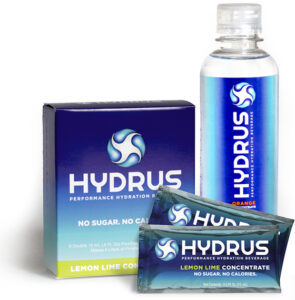Evidence increasingly shows that proper hydration raises visual, mental and physical acuity.
Law firms routinely invest in initiatives to maximize productivity, but how often do you stop to consider the positive impact daily wellness can have on your firm’s overall productivity? If you want to see significant workplace performance gains, then you need to build a foundation for daily wellness. That foundation is based on hydration.
Hydration is the third most frequent activity (after breathing and heartbeat) and the most frequent choice people make each day to sustain life. Hydration is the foundation of wellness; it supports diet & nutrition, exercise, sleep and mindfulness, all the essential factors contributing to a healthy lifestyle.
Dehydration and the Workplace
It may surprise you to learn that people struggle to get through the work day with various degrees of dehydration. Studies show that more than half of employees come to and leave work measurably dehydrated. In fact, almost 80% of surveyed workers believe they do not drink enough water to meet their health needs.
Legal professionals rely heavily upon visual and mental acuity to meet the demands of their jobs. Not paying attention to proper hydration levels can have many adverse effects:
- Visual Acuity—Dry eyes lower productivity ~30%
- Mental Acuity—Even mild dehydration impairs cognitive function and mood in women and men
- Physical Acuity — 1-2% dehydration is linked to a 12% decline in productivity
Stress and anxiety levels for legal professionals are extremely high. The US Department of Labor’s Bureau of Labor Statistics ranks this profession as the second-highest when it comes to stressful jobs and careers. The ABA surveyed 13,000 working lawyers and found that 19% of lawyers had severe anxiety and 28% suffered from severe depression.
Many medications used to treat stress and anxiety related illness such as depression, heart disease and hypertension (high blood pressure) as well as other common conditions such as diabetes and constipation may themselves contribute to dehydration and even chronic dehydration. They may activate the sympathetic nervous system, i.e., the fight or flight mechanism, increasing cardiac sympathetic activity, heart rate, stroke volume, vasoconstriction and maintenance of arterial pressure via increased peripheral resistance that may add further to stress and anxiety.
Practice Well-being Hydration
Many studies show that dehydration reduces cognitive function and productivity by as much as 25%. Improving hydration even a small percentage throughout the day for a majority of people can raise visual clarity, mental energy, focus and even creativity. Well-being Hydration is a functional process designed to effectively hydrate and lead to long-term well-being, health and productivity outcomes.
But hydration does not necessarily improve just because a person drinks more water. Hydration happens after electrolytes absorb into the body’s tributaries, i.e, bloodstream, lymphatic system and interstitial spaces. Water then flows to wherever the highest concentrations of electrolytes exist via osmosis to hydrate cells throughout the body. In other words, electrolytes are equally as important as water to hydrate effectively.
A Daily Hydration Plan To Improve Productivity
The key to improving hydration is to introduce water and electrolytes throughout the day, whenever diet is insufficient to narrow the dehydration gap. This establishes and maintains an optimal balance as part of your regular wellness routine. Here are some steps you can take:
- Drink water and electrolytes early in the morning
- Maintain adequate fluid intake throughout the day
- 12.5 – 15.5 cups of water for men
- 9.5 – 11.5 cups of water for women
- Drink water and electrolytes in the middle of the afternoon, especially when energy begins to wane
- Add a drink of water and electrolytes when consuming alcohol
- Try to replace alcohol with water when possible during travel
- Drink water and electrolytes before, during and after exercise
- Keep a drink of water on your nightstand, in case you awake thirsty
If you have a medical condition, an autoimmune condition, or are on medications contributing to dehydration, then you may be prone to chronic dehydration and need extra vigilance about managing your hydration levels.
If you persistently awake with dryness (eyes, mouth, nose, skin or vagina) and other symptoms of dehydration (poor sleep, headaches, cramps, muscle/joint soreness), add water and electrolytes.
The Result
When you hydrate effectively, expect to experience a number of potential outcomes. Generally, people notice more energy, less fatigue, clearer vision and less eye discomfort (particularly if you have dry eyes), less brain fog, sharper thinking, more creativity and less cravings, especially for sugary food, sugary drinks and stimulants. You may begin to notice less dry mouth, dry nose, dry skin or vaginal dryness, particularly after a week or two, if you’ve been chronically dehydrated.
Hydrus Is The First Well-being Hydration Beverage
Well-being Hydration beverages are a new drink category designed specifically with healthy new science to assist water and electrolyte absorption and without the sugar for daily use.
Compared to like-for-like hydration drinks, studies show that the science in Hydrus delivers 40-46% greater water and electrolyte absorption than traditional sugar-electrolyte drinks. Hydrus is sugar-free for healthy daily use. For more information about hydration drink categories, please see Hydration Beverages – What You Should Know For Health And Well-being.
